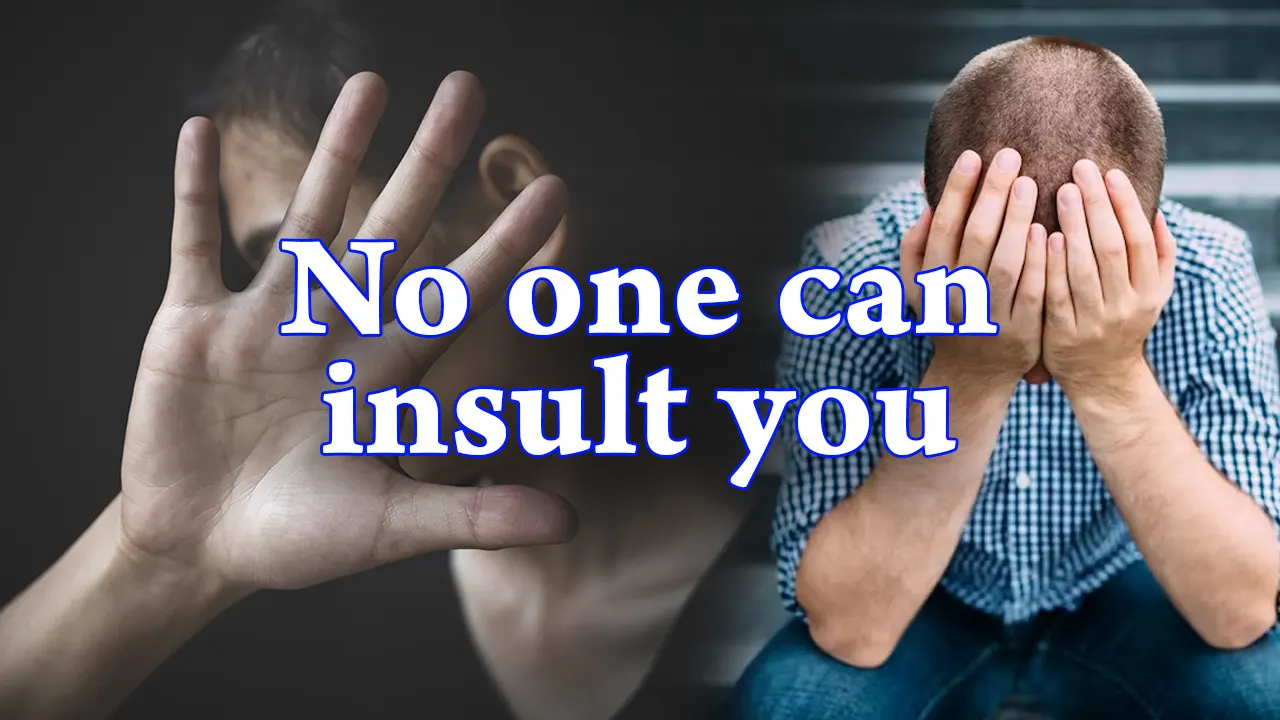Once upon a time, Gautam Buddha was sitting peacefully under a tree when an angry man approached him and began to insult him. The man thought that Buddha would respond with anger, but to his surprise, Buddha remained completely calm. There was not even a hint of change in his expression.
The man, becoming even angrier, continued to hurl insults at Buddha, hoping for a reaction. However, Buddha remained unmoved and showed compassion in his expression. The man, growing tired of his futile attempts to provoke Buddha, finally asked, “I’ve been insulting you relentlessly, but why aren’t you angry?”
Buddha replied calmly, “My dear friend, I haven’t accepted a single insult from you. You heard them, didn’t you? I don’t need to accept insults, so why should I be bothered by them?”
The man was puzzled and persisted, “But I’ve insulted you, and you must have heard it!”
Buddha patiently repeated his response, “I have not accepted any of your insults. Therefore, all those insults remain with you. There’s no reason for me to be angry.”
The man remained speechless, feeling ashamed of his behavior, and asked for Buddha’s forgiveness.
This story teaches us that in life, we often get upset by what people say about us. When we react this way, we allow others to control our peace of mind. When someone insults you or says something unfair, they are trying to disturb your inner peace. If you become angry or upset in response, you let them succeed in their goal.
Instead, it’s wiser not to get upset by what people say about you. Practice patience and maintain your calmness. This inner strength is the hallmark of a wise person.
FAQ
1. How did Gautam Buddha respond when a man insulted him in the story?
- Gautam Buddha remained calm and showed compassion while the man hurled insults at him.
2. Why was the man surprised by Buddha’s reaction to the insults?
- The man expected Buddha to respond with anger or frustration, but Buddha’s peaceful demeanor surprised him.
3. Did Buddha accept the insults directed at him in the story?
- No, Buddha did not accept any of the insults. He explained to the man that he hadn’t accepted them.
4. Why did Buddha say that he hadn’t accepted the insults?
- Buddha used this explanation to teach the man that insults only have power over us if we accept them and react emotionally.
5. What did the man realize at the end of the story?
- The man felt ashamed of his behavior and asked for Buddha’s forgiveness when he realized that his insults had no effect on Buddha’s peace of mind.
6. What lesson can we learn from this story regarding insults and reactions?
- The story teaches us not to let insults control our emotions. We can choose not to accept hurtful words and maintain our inner peace.
7. Why do people sometimes insult others or say unfair things about them?
- People may insult others to provoke a reaction or disturb their peace of mind. It’s important not to give in to such provocations.
8. How can practicing patience and calmness help us in dealing with insults?
- Practicing patience and remaining calm in the face of insults empowers us to control our reactions and maintain emotional stability.
9. What is the significance of not getting upset by what people say about us?
- Not getting upset by what others say about us allows us to maintain control over our emotions and inner peace.
10. What is the essence of the Buddha’s wisdom in this story? – The essence of the Buddha’s wisdom is that insults have no power over us unless we choose to accept them. We can choose peace and calmness instead of reacting with anger or hurt.





